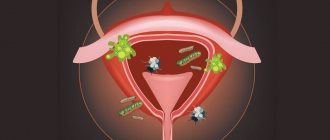THE CONCEPT OF NORMATIVE CRISIS AND ITS PLACE IN THE SYSTEM OF CLASSIFICATION OF PSYCHOLOGICAL CRISES.
The proposed classification is based on the identification of two classes of crisis phenomena - normative and non-normative crises. It seems to us that only by considering both classes in comparison, is it possible to determine clearer boundaries of each type of crisis - their common and different characteristics, patterns and features.
The concept of “normative crisis” was first used by E. Erikson in his psychosocial epigenetic theory of development. E. Erickson about [18, p. 162 - 163]. Thus, E. Erikson separates normative crises from others, focusing on their connection with development, namely, with the physiological processes of growth and maturation, combined with certain - normative - ideas of society about age stages. Through crises and accompanying choices, a person’s identity develops; the nature of the choice also affects the further success or failure of a person’s life. E. Erikson writes that he uses the concept of crisis in the context of ideas about development in order to “highlight not the threat of catastrophe, but the moment of change, a critical period of increased vulnerability and increased potential...” [18, p. 96].
In Russian psychology, close to the concept of a normative crisis by E. Erikson are the ideas about age-related crises developed by P. P. Blonsky and L. S. Vygotsky. They believe that age-related crises are associated with development - they lead to the formation of psychological new formations that change the structure of the personality and its relationship with the environment at each stage of development. Age-related crises arise in connection with the maturation of psychophysiological structures and the emergence of new needs in a child at certain stages of development and have a delineated range of symptoms, i.e. external manifestations. Currently, the terms “age-related crises” and “developmental crises” are used as synonymous, but priority is given to the second concept, since there is less visible connection with chronological age, which becomes more conditional as one approaches maturity.
So, both the normative crises of E. Erikson and the age-related crises of L. S. Vygotsky are closely related to development. This leads to the most important point, the question of the determination of psychological crises that forms the basis of our classification. We can divide the entire set of psychological crises into normative crises (developmental crises) and non-normative crises (life crises) according to the parameter of determination. Normative crises of development are internally determined, since multi-level psychological new formations of a person “ripe” within him and change the existing structural organization, and he, accordingly, makes changes in the external environment. A crisis arises as a stage of functional restructuring of systems, destruction of the previous social situation of development, and the formation of a new integrity.
Non-normative crises, on the contrary, are determined from the outside. This includes critical situations that precede a crisis and are highlighted by most authors: death of loved ones, moving, divorce, serious illness, separation from parents, family, friends, change in appearance, change in social situation, status, etc. In this case, sudden and/ or significant changes in the external environment require a significant restructuring of the personality, its system of relationships, the image of the world and self-concept, the value-semantic sphere. Figuratively speaking, in normative crises the person “leads” the environment, in non-normative crises the environment “leads” the person.
By identifying the subtypes of these two large classes of crisis phenomena, we can say the following. Non-normative crises can be quite clearly divided into traumatic crises and adaptation crises, which differ in the strength of external influences. Traumatic crises are the most severe, caused by emergency and/or extreme situations with the threat of loss of health or life, and destroy the basic sense of security (terrorist acts, disasters, violence, military actions). Adaptation crises are present in the life cycle of any person (those losses of loved ones, moves, divorces, illnesses, etc.), they are caused by a sharp change in the external and internal conditions of a person’s life, creating a threat to the satisfaction of basic life needs.
Normative crises include age-related life cycle crises. Summarizing numerous age periodizations, we can name them in ontogenetic sequence: newborn crisis, 1-year crisis, 3-year crisis, 7-year crisis, teenage crisis, youth crisis of self-determination, crises of early adulthood, 30th anniversary crisis, 40th anniversary crisis (“ midlife"), crisis of late adulthood, crises of old age. In addition, some authors talk about normative crises of professional development (E. F. Zeer, E. E. Symanyuk) and about normative crises of the family cycle (A. Chernikov, I. Dobryakov, etc.). However, the former are identified with crisis periods in the age-related development of an adult, the latter are related not to the individual as a whole, but to the family system.
Biographical crises are highlighted separately (R. A. Akhmerov, A. A. Kronik), which are understood as “various forms of a person’s experience of the unproductivity of his life path” [2, p. 1]. R. A. Akhmerov empirically showed that during biographical crises, a person’s assessment of the productivity of his life in one of the temporary modes of the subjective picture of his life path decreases: its past, present or future. In addition, the integration of self-awareness is disrupted, and physical and mental health deteriorates. The main manifestations of a crisis are emptiness, unfulfillment and hopelessness, which can occur in various combinations and have varying degrees of severity. In the studies of A. A. Kronik and R. A. Akhmerov, biographical crises were identified both in adults experiencing normative and in adults experiencing non-normative crises. In this regard, we consider it legitimate to say that biographical crisis experiences are included to a certain extent in the experience of a psychological crisis of various determinations due to the characteristics of an adult who comprehends his life as a whole. Akhmerov himself identifies biographical and life crises, which, in our opinion, also emphasizes their integrative nature (see figure).
Normative and non-normative crises have a number of common features associated with the concept of a psychological crisis in general and a number of differences. Let us consider general ideas about a psychological crisis and highlight its psychological “markers”.
Figure - Classification and relationship of types of psychological crisis
The concept of crisis comes from the Greek word krisis - “decision, turning point, outcome, judgment”, that is, it means a sharp turning point in the course of a process, changing its shape and direction, as well as the moment of choice. There is a widespread medical understanding of crisis as a point of painful transition, after which the body either recovers or dies. According to sociologist A.G. Zdravomyslov, “the feeling of crisis arises on the basis of comparison with what happened before, or more often with what should have been, i.e.
that is, with some normative idea of life. To feel a crisis, you must first feel a certain “normality” [7, p. 8]. I. S. Kon emphasizes the moment of imbalance, the emergence of new needs and the restructuring of the motivational sphere of the individual” [8, p. 76]. The understanding of crisis, proposed by the founder of the psychology of crisis intervention J. Kaplan, as a state generated by a problem facing a person, from which he cannot escape and which cannot be resolved in a short time and in the usual way, is implicitly present in all identified types of crises. Lisbeth F. Brudal is based on the definition of crisis given by Chinese scientists - “a chance full of danger” [10, p. 12]. Based on this, the crisis is considered as a process that has two sides: a danger to personal growth and the potential for personal growth. Summarizing the above, we can conclude that any crisis crosses out something old that existed before it; accordingly, any psychological crisis is associated with significant restructuring in the “human” system. Any psychological crisis, both normative and non-normative, contains both potential opportunities for development, progress, and potential opportunities for regression. The peculiarity of a crisis is that, as a result of its resolution, a person can switch to a qualitatively new way of life; what served as the reason and reason for the experience can be reincarnated as a result of the overcoming reaction into an internal experience that regulates further principles and a program of life activity. A psychological crisis is characterized by “crisis symptoms” (a term introduced by L. S. Vygotsky in relation to age-related crises, and currently used in relation to non-normative crises) by a special phenomenology, including affective, cognitive, behavioral components corresponding to a period of internal disorganization. Crisis phenomena are always associated with a deep experience of the meaning of life and are the most large-scale (in contrast to stress, frustration and conflicts, according to F. E. Vasilyuk), they occur within the framework of a person’s life path, being milestones of his individual history.
Differences in the determination of psychological crises are reflected mainly in the dynamics of their course. Non-normative crises, caused by changes in the external conditions of existence, require significant efforts from the individual to adapt, comprehend the changes that have occurred and, accordingly, personal reorganization in connection with them. In the dynamics of this process, 4 phases are distinguished: 1) shock and denial, numbness, ignoring the traumatic event; 2) the reaction phase, awareness of reality and the search for meaning is accompanied by the experience of “destructive” feelings of anger, a sense of injustice, attempts to destroy reality; 3) phase of processing grief, despair, acceptance of a new reality; 4) the phase of new orientation, reorganization and the birth of new meaning [12, p. 110]. Similar dynamics of the development of a non-normative crisis are described by D. A. Leontyev [9, p. 14]. He identifies three stages of passing through a critical life situation: protection (unconscious defense mechanisms are activated), adaptation to the situation and mastery of the situation. Appearance indicator
The last level is the emergence of a need for active change in the current difficult life situation, a desire to act and transform suffering into the practice of life.
Regulatory crises develop differently. The structure of the age crisis is an extremely aggravated socio-psychological contradiction - the contradiction between external norms, requirements, increased needs and aspirations of a person and his current capabilities. Subjectively, this state is experienced in the form of “I can’t live in the old way.” L. S. Vygotsky identified 3 phases during the age crisis: pre-critical, actually critical and post-critical. The first and last merge with stable periods; in the central phase, the crisis manifests itself in behavior and activity and becomes noticeable to others. The structure of the age crisis, using the example of childhood crises, was carefully studied by K. N. Polivanova. Based on the provisions of the cultural-historical concept and developing an idea of the social situation of development, she derives an understanding of crisis as a contradictory, conflicting relationship between real and ideal forms in development. The real form is understood as the actual social situation of development. The ideal form is some idea of a possible future, which turns out to be attractive and attractive. Based on these considerations, the regulatory crisis has the following dynamics:
1. The precritical phase reveals the incompleteness of the real form on the basis of the emergence of a new, ideal form. A person is already beginning to compare; his current social situation appears as one of the possible ones. L. S. Vygotsky calls the first phase of the crisis the phase of attraction, during this period a person moves from “here and now into a time perspective and idealizes a new ideal form” [13, p. 147].
The critical phase itself contains 3 subphases: 1) an attempt to materialize the ideal form of the sample. At this stage, the attempt at implementation includes only the use of the external form, without understanding the content of the new stage of development; 2) the conflict stage, the discovery of the impossibility of directly translating the ideal form into real life. As a result of the conflict, an understanding is reached that the impossibility of realizing the ideal form is associated not only with external limitations, but also with internal abilities, certain personality traits, as a result, motivation for new activities arises and conditions are created for overcoming the crisis; 3) reflection of one’s own capabilities.
3. Post-critical phase - the creation of a new social situation of development, the implementation of a new form - ideal, not idealized, not formal, but full-fledged.
The psychological content of the critical period is the subjectification of new formations that appeared in the previous stable period, which means the transformation of the new formation into the ability of the acting subject itself. The new formation is thus formed in 2 stages: having matured towards the end of the stable period, in a crisis it is tested, mastered, and becomes an integral part of the subject.
The described Vygotsky-Polivanova model of the dynamics of a normative crisis was developed for childhood crises. For a reasonable extension of it to the normative crises of the adult period, psychological saturation of ideas about the trial and subjectification of neoplasms in adults is required. Such work is carried out in the research of E. L. Soldatova, who rethinks the doctrine of the dynamics of the age crisis, taking into account the age-related characteristics of an adult. She sees the main difference in the fact that the tasks of childhood are associated with the development of new types of activities, and the tasks of development during adulthood are associated with the development of the individual in a system of social relations specific for each age. Thus, considering the dynamics of the normative crisis, we have come to one of the most significant problems in this area of developmental psychology - the problem of the difference in the methodological bases for studying the crises of childhood and adulthood, which originates in the qualitative difference in the eras themselves being studied.
>> Source:
GRODNO STATE UNIVERSITY NAMED AFTER YANKA KUPALA.
PSYCHOLOGY OF A PERSONAL LIFE: METHODOLOGICAL, THEORETICAL, METHODOLOGICAL AND APPLIED PROBLEMS. 2012 January 24, 2021 Social psychology
More on the topic
THE CONCEPT OF NORMATIVE CRISIS AND ITS PLACE IN THE SYSTEM OF CLASSIFICATION OF PSYCHOLOGICAL CRISES.
UDC 159.V. R. MANUKYAN ON THE PROBLEM OF NORMATIVE CRISES OF ADULT DEVELOPMENT
UDC 159.V. R. MANUKYAN ON THE PROBLEM OF NORMATIVE CRISES OF ADULT DEVELOPMENT
FEATURES OF SELF-CONCEPT IN ADULTS WITH DIFFERENT SEVERITY OF NORMATIVE CRISIS
Tlegenova M.A. Study of the normative crisis of development during late adulthood
THE CONCEPT OF SPIRITUAL CRISIS It is darkest in the hour before dawn.
V.D. Alperovich CRISIS OF THE SYSTEM OF PERSONAL RELATIONS IN CONNECTION WITH LIFE EVENTS OF DIFFERENT TYPES
Chapter 3. PSYCHOLOGICAL ASPECTS OF THE SOCIAL CRISIS
1.2 GENERAL PSYCHOLOGICAL CHARACTERISTICS OF A MEANINGFUL CRISIS
The place and role of the concept of the subject in specific psychological research and practice
PSYCHOLOGICAL FEATURES OF CRISES OF PROFESSIONAL DEVELOPMENT
PSYCHOLOGICAL ROOTS OF GLOBAL CRISES
N.G. Novak STRUCTURE OF PSYCHOLOGICAL WELL-BEING OF STUDENTS WHO HAVE EXPERIENCED A FAMILY CRISIS
L. V. Rykman PSYCHOLOGICAL CONTENT OF THE FRESH-YEAR CRISIS (BASED ON THE EXAMPLE OF SCHOOL STUDENTS).
PSYCHOLOGICAL ASPECTS OF EDUCATIONAL AND PROFESSIONAL CRISES OF PSYCHOLOGY STUDENTS
SOLODUKHO A.S. MODERN PSYCHOLOGICAL KNOWLEDGE: CRISIS OR NEW BEGINNING?
M.V. Danilova DIRECTIONS OF PSYCHOLOGICAL ASSISTANCE IN CONNECTION WITH THE CRISIS OF CHOICE OF PROFESSION
PSYCHOLOGICAL PROPERTIES OF MEANING IN LIFE AS INTERNAL OBSTACLES TO SELF-REALIZATION OF PERSONALITY AND DETERMINANTS OF MEANINGFUL CRISIS.
PSYCHOLOGICAL PROPERTIES OF MEANING IN LIFE AS INTERNAL OBSTACLES TO SELF-REALIZATION OF PERSONALITY AND DETERMINANTS OF MEANINGFUL CRISIS.
ZABIRKO A.A., KORBUT A.M., KORCHALOVA N.D., KRASNOV Y.E., KRASNOVA T.I., POLONIKOV A.A. UNIT OF CONTENT OF PSYCHOLOGICAL EDUCATION IN PARADIGMAL CRISIS
Related Posts
Variety of activities
THE INFLUENCE OF FAMILY COMPOSITION ON CHILDREN’S ABILITIES: THE ROLE OF GENERATIONS
Radioactive radiation
Chapter 16. Student personal activity planning system
Add a comment
Click to cancel reply.
Copyright © 2021. psihologia.biz
Stages of crisis diagnosis
The state of the economic environment can be determined on the basis of signs that can make the transition from market conditions to conditions of financial instability, inflation, depression and minimum production volumes.
In the current situation, the activities of any organization and enterprise largely depend on these characteristics. Therefore, enterprises set, first of all, the task of “staying afloat” and providing favorable conditions for development in the future.
The policy of relatively stable financial management is part of the overall financial strategy of the enterprise, which consists in developing a system of phased diagnosis of the crisis and methods for its implementation.
The following stages of diagnosing a crisis are distinguished:
1) qualitative definition of the object. The belonging of an object to a specific class or group of objects is established;
2) quantitative determination of the object;
3) determination of permissible deviations from basic indicators;
4) defining a methodology for the purpose of forming institutional norms.
Depending on the goals, there are various crisis management strategies, but common to them are timely recognition of a crisis situation, identification of the causes, symptoms and factors of the crisis.
Diagnostics are based on an analysis that determines the general patterns and pathologies of the process.
The effectiveness of diagnostics will be higher if you use various diagnostic methods, since this allows you to obtain a set of fundamentally new data regarding the diagnostic object and draw appropriate conclusions about its development.
Examples of similar educational works
Factors that determine professional development crises
... of a person: liquidation of an enterprise, job cuts, unsatisfactory wages, moving to a new place of residence, etc. Factors causing a crisis in professional development are age-related psychophysiological ...
Psychological study of the features of the development of representative systems in adolescence...
... and adulthood. Hall's merit, in our opinion, is that he first introduced the idea of intermediary, transitionality of a given stage of development; secondly, the concept of crisis is the most...
No. 6 Vygotsky’s age-related developmental crises
... the cycle of “work - having children - rest” to ensure proper development for your children. The lack of such experience leads to isolation of a person and his isolation on himself. The seventh crisis... may freeze in a state of pseudo-intimacy (stagnation), which...
System of management methods
... impact. This is very important in huge multi-level management systems (for example, in large enterprises). . Economic methods of management Economic methods of management combine all the methods by which influence is exercised...
ROLE OF CRISES IN HUMAN DEVELOPMENT
... one stage of mental development to another, then crises may not occur with adequate external control of the development process [21]. However, in ... the spiritual growth of a person. According to S. Groff, the state of crisis can be difficult and frightening, but it has ...





